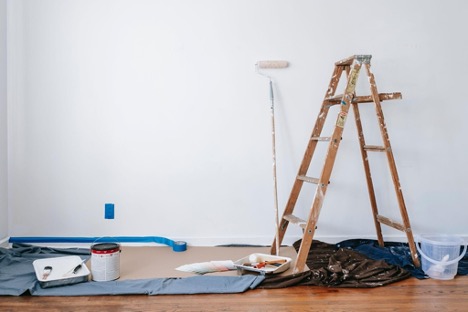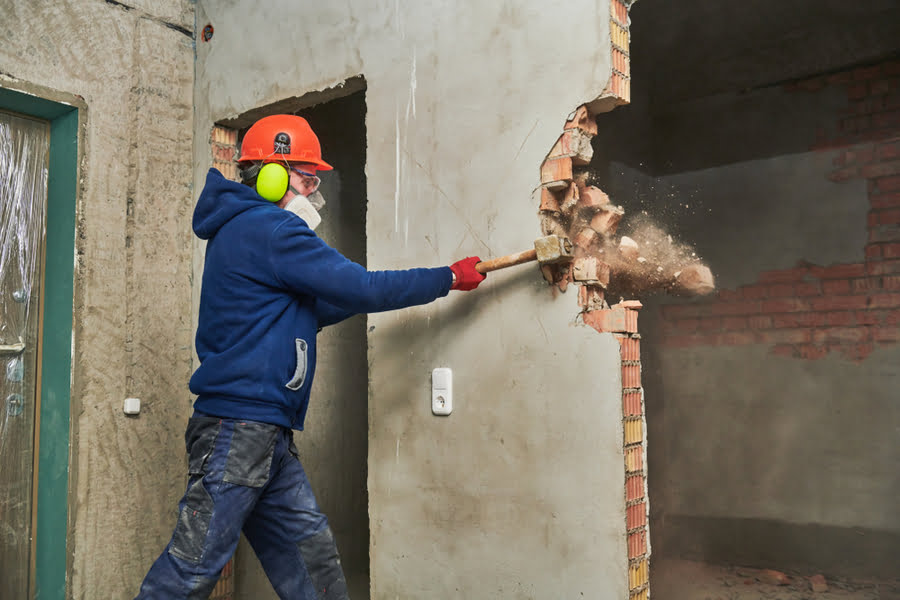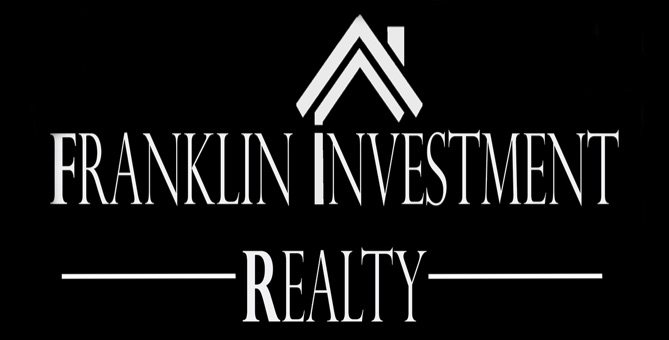Five Ways Real Estate Developers Can Invest in Safety

Successful real estate investors know how to juggle everything. They can make a profit, attract prospective tenants, and protect workers’ safety all at the same time. Developers who cut corners, though, may pursue profits above all else. In addition to the ethical concerns this brings up, it’s typically not an effective approach. When you skimp on safety, costly liabilities may come to fruition. Find out what it takes to become a real estate developer — and how you emphasize safety in your projects. Always Implement a Contract You may not think of a contract as a safety feature, but in many ways it is. An effective contract will outline the responsibilities of each party. This is important when you’re contracting with construction workers. Your contract should clearly identify the standards that they will be held to regarding safety. As you’re drafting this document, you may use Word so that it’s easier to edit, but you should convert it to a PDF before sending it to a client. You can do so with a Word-to-PDF converter tool. Keep an Eye on Construction Some real estate developers may take a metaphorical vacation between the time when a property is purchased and tenants are sought. This is a major safety risk, though, as a construction site should have constant oversight so that liabilities are avoided. This starts with choosing a site that has minimal flood or fire risk. Once building starts, a developer should further ensure its safety by establishing clear guidelines and enforcing them consistently. Personal protective equipment should be supplied, for example, and required at all times. Work With Trustworthy People It can be hard to know who’s trustworthy in a business context, but making this discernment is an essential safety issue for any real estate developer. In addition to a construction crew, you may need to work with professionals such as investors, a marketing and sales team, and an attorney. When you are looking for these people, you should ensure that they care about safety as much as you do. Install Lighting to Protect Pedestrians and Drivers Lighting is another essential component of your development’s overall safety. You might not think that lights can play a major role in reducing crime and preventing accidents, but research proves that they do. Indeed, if you have a parking garage on your premises, you need to ensure that drivers are able to see — even if there are canopies or tunnels. If you’re looking for canopy lighting, strategically placed lighting will ensure visibility so that pedestrians are safe. Ensure You Have the Right Qualifications In many states, there are no explicit requirements to become a real estate developer. If you aim to conduct real estate transactions, you may need to obtain a real estate license to do so. The criteria for licensure vary from state to state, but most areas require an educational component and passing a test. If you simply want to develop properties, though — and allow somebody else to manage the real estate — you can likely do so without a license. If you are seeking funding from a bank or investor, though, they may be more willing to provide financing if you can prove your qualifications. Pursuing real estate development is an ambitious decision, but it can pay off if you’re willing to invest in safety, protect yourself with contracts, install the right lighting, and ensure you have the necessary qualifications. If you’re looking to buy or sell an investment property, contact the experts at Franklin Investment Realty today! – Shirley Martin
How to Make Your Rental Property More Desirable

When it comes to investing in rental properties, it’s all about generating income to ensure profit. But like all types of investments, it comes with a risk. Mitigating those risks will require preparation, proper planning, and knowledge. Are you aware of the features that renters look for in a property? Are you sure those features will appeal to them? Whether you want to market your investment property or upgrade your current rental property, you should make it stand out. From significant modifications to minor tweaks, there are many tricks and hacks to make your property more appealing. To get you started, here are three of the most important steps you can take to make your property stand out from all the competition in Philadelphia, PA, and boost your revenue. 1. Hire a property manager You can always decide to manage the property independently, but you should know that managing a rental or even multiple properties is a full-time job. Achieving high returns requires constant attention and assessment of expenses versus the rental value to maintain quality tenants. An experienced and licensed professional will handle all the daily operations as they evaluate all areas with a focus on the long-term goal. You can also hire a backyard landscaping professional to upgrade your outdoors and lawn. But before you connect with a local contractor to discuss the upgrades and request a quote, you can research and assess companies by reading their online reviews. If you’re on a budget and worried about the costs, you can also evaluate which companies offer the best deals or credits for your landscaping project. 2. Fix any repairs This might sound obvious, but it’s easily overlooked. Walk around the property and look for areas that need fixing. Do you see any cracks in the walls? Are there any loose door knobs, light switches, or anything that seems off? Some quick fixes might seem minor, but they can make a huge difference. You want a good reputation and to show tenants that you’re an attentive and active landlord from the beginning – so ensure all appliances are in great condition. Constant maintenance during tenancies is important since it shows you care for your tenants and property; plus, it’s a good strategy to attract quality clients. 3. Video marketing your property If a picture is worth a thousand words, how many is a video worth? Video marketing is one of the most effective marketing techniques. And for other obvious reasons, renters connect more with houses visually, making it ideal for real estate expansion. Start by designing a video showcasing your property to attract prospective tenants. You can use a merge video tool to edit and quickly combine videos and images to design meaningful content. The tool basically allows the user to edit and share the exact moment they want to film/capture. Stand Out From the Competition Designing an appealing rental property can seem overwhelming or costly, but with the tips highlighted in this guide, and a compelling marketing video to attract quality tenants, all the hassle should be worthwhile. If you need a reputable property investment company in Philadelphia, PA, contact Franklin Investment Realty to help you in your venture. – Rhonda Underhill
5 Tips to Keep in Mind When Home Buying Amid Rumors of a Crash

Pandemic trends led to a high-demand real estate market, with a new wave of remote workers buying in more affordable rural areas, and driving prices up. With inflation on the rise in general, and many housing markets remaining hot through a predicted downturn, it may seem a risky time to buy a home, or to invest in a new property. Despite signs of real estate being overpriced, the growing number of first-time buyers and investors are keeping the real estate market growing, even while slowing. There are plenty of deals to be had, but no one wants to get stuck paying too much for something that doesn’t keep its value. Homes, and property, as a general rule, are good investments, but as we learned in 2008, investors can tip the scales enough to bring a crash. While it’s true we’re in new territory, and one would expect a “correction” in markets where prices continue to rise beyond what local median incomes can support, the comparisons to the 2007-2008 housing market crash and the Great Recession are stirring unfounded anxieties. Consider these tips for navigating the homebuying process. Tread Carefully with Foreclosures Buying a foreclosed home could be one option to save money on your investment. But it’s crucial to understand what you’re getting into with an as-is property deal. For example, though you may be able to waive an inspection (especially if you’re buying cash), it’s not always a good idea. A home inspection can reveal issues that you would otherwise be oblivious to – leading your new property to become a money pit in no time. Hiring an inspector ensures that you find out about leaky plumbing, out-of-date HVAC systems, and roof issues long before signing over your cash. Make Essential Improvements First Treating mold and other hazards is a solid first step, and a good deep cleaning is often in order. You may also consider low-maintenance landscaping to increase your (or your tenants’) enjoyment of the home and yard. After all, the less time spent working, the more time you’ll have for relaxation. Cleaning the windows, because it’s often neglected by even the most fastidious homeowners, can make a real difference in the presentation of the home. The rooms are slightly brighter, the views more crisp. Cleanliness can have an overwhelmingly positive effect on our response to new surroundings. Thankfully, you can comparison-shop for the best window washers near me. Verify Potential Purchases Ahead of Time When buying a home while there’s looming uncertainty, there’s always a possibility that legal issues will crop up. Foreclosures are particularly susceptible to both structural and legal problems. But it’s smart to check out the property’s title status before making an offer – or at least before locking in a contract. As Rocket Lawyer explains, in most areas, you can perform a free property title search through the county assessor. It could take some digging. But confirming that the title is in good shape is a must when you’re investing in a potentially awful investment. Have Cash In Hand If you’re looking for a rental property to invest in, you may have funds available for an outright purchase. But if you’re a first-time homebuyer or are taking out a conventional loan, low rates aren’t the only thing to know about in a recession. Because many real estate markets are becoming increasingly competitive, prospective homeowners can expect to play hardball when it comes to making an offer. That might mean asking for seller concessions or closing cost support is a no-go. You’ll also need cash for your down payment and incidentals, whether you’re going with a conventional loan or an alternative with lower up-front costs. Conventional loans require a 3 percent down payment minimum, and they are available at fixed or adjustable rates. By paying more up-front, a homebuyer is proving to the seller that they can afford any unexpected costs during escrow. To be the most appealing to sellers, waving around a bit of cash can’t hurt. Plus, if your down payment is 20 percent or more of the loan amount, you could skip private mortgage insurance (PMI) – a significant savings over the lifetime of the loan. Keep an Open Mind Because talk around the real estate markets and anxiety over a repeat of the housing crash and great recession, the perception of a volatile market, of an impending crash, or even of a slowing market could affect the prices of individual homes. Another look at a fixer property in a good neighborhood could be worth your time. Similarly, comparing financing options or offering more cash at closing could boost your appeal to sellers. The predictions are in and despite similarities to the last housing crash, most housing markets will only slow slightly and the demand for housing will continue to drive home prices up. The current forecasts predict that buying today is still a good investment over the long haul. Buying or selling in the greater Philadelphia area? Make sure to work with a skilled agent from Franklin Investment Realty! Contact them today! – Shirley Martin
First-Time House-Flipping How-Tos for Seniors

Have you considered starting a house-flipping business? As a senior with time and the motivation to work hard, it can be a good idea to go into the house-flipping industry. This is one of the businesses that give you the opportunity to get exercise while making some money. Here is an outline the things you should consider that will help you get started with flipping houses. Consider Financing To acquire the first house to flip, you need money. There are costs involved when buying a house to flip, including renovations and marketing. The money you need to renovate the house depends on market conditions and you should also consider utilities, taxes, and insurance while working on it. The Mortgage Reports notes that one of the options is getting a loan, which can be difficult sometimes as banks consider first-time flippers risky borrowers. Once you get several houses under your belt, you’ll raise your profile and find it easier to get approved for credit. Use Software to Your Advantage As a property flipper, you’re now running your own business, which calls for utilizing technology to help with areas like marketing. Your logo, for example, will be on your business cards, your letterhead, your website, and all your social media accounts. The challenge with designing an eye-catching logo is that the combination of graphics and text must convey your values and your messaging, but you don’t have to spend a fortune on a graphic designer to get this done. You can go online and make a logo for free today using one of thousands of professionally designed logo templates that you can customize to your liking. SimplyShowing points out that there will likely be pros that you’ll use for repairs and upgrades that you either aren’t equipped to do yourself or don’t have the time to complete. You may also employ a property manager to handle ongoing maintenance like lawncare and appliance upkeep. In any of these cases, your best bet is to check out payroll software that is robust enough to handle timely distribution of paychecks, as well as tracking labor expenses per project. Look for a platform that will generate W-2s and direct deposit. How to Find the Ideal Property Not every house out there is a good investment. Buying a house “as is” for example may not be as beneficial as you’d think, as there’s always the possibility of costly repairs in the future. Finding good real estate will help you sell without problems, and you can raise your profits significantly. First, ensure the home is in a great location. Begin with searching local cities and neighborhoods. Consider areas with rising real estate sales, a thriving town, employment growth, and other indicators. Also, consider safety in each neighborhood. You can use services like ADT to know what’s happening in a neighborhood. Next, check the condition of the home to know if it would require too many renovations. If the condition is not too bad, calculate the market value of the property. Don’t overvalue as you still need money for renovations and other upgrades. Understand the 70% Rule When analyzing the amount they can pay for a house, skilled flippers use the 70% rule. The rule states one should never pay more than 70% of the properties’ value after repair before all those repairs are done. This means if the after repair value (ARV) of the home is $200,000 and you need $30,000 in repairs, the rule states you should not pay anything more than $110,000 for the home. This is a valuable guide you can use when you enter the house flipping business. Be Cautious About Fixer-Upper Property When buying fixer-upper property, you need to be cautious. While it’s an option when you want to save money, you can be stuck with massive costs for renovations and repairs. Ensure the home does not require a major overhaul to be ready for the market. Things like foundation problems, HVAC upgrades, mold and asbestos, and electrical work could be a deal-breaker. While estimating repair costs, always add about 20% in the estimate to ensure you don’t end with a property that would take you ages to sell. Flipping houses is a risky business that can also be rewarding if you understand how to approach it. If you make the right decisions, you will make good money. Learn everything about flipping houses, including payroll processing, dealing with taxes, evaluating a property for repairs, and calculating market value. This guide could be the starting place for your journey in house-flipping. Franklin Investment Realty specializes in the acquisition of investment properties, leasing, management, sales and development of properties in the Greater Philadelphia area. Contact us today for more info! (215) 382-7368 – Shirley Martin
What to Know Before Buying a Commercial Building

Buying a commercial building is the best way to push your business ahead and make massive strides: but if you decide poorly or don’t plan well enough, you could be setting your company up for failure. Whether this is your first commercial building or your fiftieth, it’s vital that you consider some things before making that purchase. These are the top ideas to think over. How Much Space You Need Now and Will Need in Ten Years Although you may be looking at some of the most incredible buildings and feeling inspired by them: it’s vital that you consider the space within them. Before anything else, plot out what a reasonable growth plan for your business for the next ten years would be. Of course, it’s a good idea to be realistic, but every company changes and shifts over time, so it’s vital that when you put in the money, you know that this building will be able to handle your needs. If you’re expecting to bring in more employees or change to bulkier equipment within the next five years, you’ll need to get a commercial building that has room for you to grow into. What Features The Building Has, And Which You Need What features does this commercial building have? Does it offer an updated breakroom with awesome options for your employees? Does it have attractive architectural louvers that ensure the HVAC system runs like a dream? Is there ample parking with easy access to the building? These may seem obvious, but one of the biggest mistakes you can make is buying a building without looking at what it offers: and considering what you need. On the other hand, if a building is just outside of your budget, but you love the details and amenities it has: consider buying lower and looking into the cost of adding those amenities yourself. Although this will make you put more money upfront, it can turn out cheaper overall. Do The Spaces Work For Your Specific Needs Many features that buyers look for in commercial office design ensure the building is perfectly suited to their business. If your budget is tight, it’s good to be flexible, but not so flexible that you try to turn an overheated warehouse into a call center. Look at the layout of the space, consider the number of rooms and their current use, and think about whether or not this speaks to what your business needs. Although you can update things and change walls or the layout whenever you want, it’s expensive to do so and should be avoided if possible. Is The Location In An Area Easy to Reach By Customers and Employees Whether you’re going for a 5,000 square foot or 20,000 square foot building: it’s vital that you consider the location. If you’re not planning on running your business alone, is this location a space that customers and employees could easily access? Although you shouldn’t buy a city-center location if you can’t afford it, it’s a good idea to keep as close to populated areas as you can. Land may be extremely cheap in distant communities, but if you can’t get enough employees to work the machinery or handle operations: it’s not worth the saved money. Try to find a balance between affordable and accessible for your employees. How Are You Financing This? Can You Afford it Even if Sales Dropped? How do you plan on financing your commercial building? Are you planning on getting a long-term loan that you’ll pay back in sales, or are you paying for it out of pocket? If you’re getting a loan, it’s vital that you ensure even if you lost fifty percent of your sales, you’d still be able to afford this space. Although nobody wants to think about their business dropping that much, 2020 showed many companies that they have to be prepared for any possible incidents that could happen. Careful planning and budgeting will protect your company even if everything else goes south. Do You Have a Team Behind You Helping Make Decisions? How are you deciding on this property? Are you the only decision-maker, or is there a board you have to gain approval from? Try not to work alone on this decision, and loop in an experienced commercial real estate agent to help you. Not only will they be able to show you more properties that you may not have considered, but their experience will also help you avoid making any big mistakes. Your business is a large investment of time, work, and money, so don’t go into any huge decision until it’s been thoroughly discussed and plotted out. Buying a Commercial Building is a Huge Investment Buying a commercial building is a massive investment that will tie your entire financial future into whether or not your company succeeds. It’s important to plan ahead and work with an experienced real estate agent to make sure you’re making the right choices. Sam Willis is a contributor to Innovative Building Materials. He is a blogger and content writer for the real estate industry. Sam is focused on helping fellow homeowners, contractors, and architects discover materials and methods of construction that increase property value, maximize energy savings, and turn houses into homes. – Sam Willis
Want to Upgrade a Fixer-Upper?

Want to Upgrade a Fixer-Upper? Know How to Proceed to Get the Most Profit Purchasing a home in the Greater Philadelphia area, renovating it, and then flipping or renting it can be a profitable investment. However, you should know a few tips, or you could find yourself losing money. Franklin Investment Realty will be there to guide you through the process and here are a few tips below. Consider a Real Estate Owned Property A real estate-owned property is one taken by a lender due to failure to pay. You can find listings for REOs in Philadelphia and the general vicinity on a real estate listing site, such as realtor.com. You can also check for listings through an auctioneer or on a bank or government site. Typically, an REO property is less expensive than a standard listing. Be cautious as you look for REO properties, though, because some may need significant repairs. Take into account the location and the nearby amenities. These play a major role as to whether the home will sell or entice renters. Additionally, get an appraisal to determine the listing price compared to the actual value. Rent or Sell Carefully weigh the pros and cons of renting or selling. Keep in mind that you’ll be responsible for the yearly taxes, even if you have periods when the home is vacant, if you rent. You’ll also need to maintain the house and make repairs as necessary. If you sell the home, you’ll only need to worry about paying taxes once. In addition, you may need to make certain repairs before closing if you sell. As a general rule, a home that you sell is held to higher standards than one you rent. Therefore, if the house needs significant repairs after the renovation, it may be in your best interest to rent the home. You should also take into consideration the housing market. If the current conditions are in the buyer’s favor, you may want to rent first and sell when it’s a seller’s market. When marketing the house, be sure to list it widely online with good photography. Use the best online image size converter to guarantee that your images look their best on each website. You can also use social media to publicize your listing. Know Your Responsibilities and the Law Know what you’re responsible for first before renting a home. Firstly, and possibly most importantly, you’ll need to comply with Pennsylvania laws. For instance, you must take care of major repairs, such as a broken toilet or heater. If you don’t keep the property up to code, a tenant may have a legal reason to withhold rent. You’ll need a written lease or rental agreement. The agreement should include information, such as the rent price and when it’s due. You may want to hire legal assistance to ensure you’re in adherence to Pennsylvania laws. Think About Hiring a Property Manager A property manager handles maintenance and repair. Hiring one may be especially important if you don’t live in the Philadelphia area since every time something needs to be repaired or maintained, you’d need to be there, possibly outside business hours. It’s also beneficial if you’re busy or unfamiliar with home repair. You can find local options online. Make sure you read reviews first as you compare. You’ll want to check for licensure and certifications. Turn That Fixer-Upper Into Profit Ensure your investment is profitable by making a sound decision regarding renting or selling. It’s also essential to understand the law and hire assistance when needed. – Rhonda Underhill
Guide to Philadelphia Investment Property

Guide to Buying Rental Property In Philadelphia Millennials, people between the ages of 23 and 38, have surpassed Baby Boomers as the nation’s largest adult generation. But they still trail the Boomers when it comes to being heads of households. But the strange thing is, millennial households dominate the home rental market. Because our largest adult generation would rather rent their home than own it, the real estate market is ripe for people looking to invest in income properties. America’s Favorite Long-Term Investment The popularity of real estate is near an all-time high. Low interest rates and the millennial generation’s desire to rent rather than own is increasing the demand for rental real estate. Is it time to get into the landlord business? Owning a piece of rental property can be a great investment when it is approached with a long-term outlook. Someone else pays down your mortgage, you keep the rent that exceeds the mortgage payment, and hopefully the home’s value increases over time. Financing Can Deliver Better Returns Some people think that if you are going to buy an income property it should be done with all cash. That way the entire rent check goes into your pocket. As an example, an investment of $100,000, the price of the home, may return $12,000 per year ($1,000 per month x 12), or 12%. However if you bought the same house using leverage, with only 20% down ($20,000), after interest charges your return on investment (ROI) could be over 25%. Where To Look: Location, Location, Location Everyone thinks they need to purchase a rental property where the monthly rents are the highest in a neighborhood where the buyer would want to live. That is not necessarily true. The people who gain the most from owning rental property are the ones that buy in areas with the greatest potential for appreciation. Remember we need to be thinking long-term. House appreciation will almost always surpass the money earned from growth in rents. This is where working with a knowledgeable realtor comes into play. They know where the desirable areas are that offer the greatest potential appreciation. Down The Road Owning a few paid off rental properties can really add to your Social Security check when you are ready to enter into retirement. You won’t have to “cut back” your lifestyle in retirement. You will be able to take more vacations, drive a nice car, and do the things that you have always wanted to do. Those things may be volunteering your time or spending more time with the grandchildren. If golf is your thing, you could visit and play some of the notable courses around the country, or even better, buy a golf simulator and play those courses on your projector without ever leaving your house. In The End You could invest in the stock market, but try going out to a company you’ve invested in and tell them you would like to tour the facility or look at the books. Fat chance of that ever happening! With an income property you are in control and you can drive by or enter it almost anytime you want. Owning income property can be an excellent investment. Approach it like a business and it can generate a substantial passive monthly income. Just realize that an income property is not an instant cash cow, it is a long-term investment. And in real estate, you make your real money when you buy, not when you sell. So spend some time with a Franklin Investment Realty agent that knows the market and can guide you to the better areas in and around Philadelphia to invest in. – Karl Kennedy
9 Ways to Properly Dispose of Demolition Debris

Construction and demolition (C&D) waste is produced during the construction, renovation, repair and demolition of homes, significant constructions, roads, bridges, locks and dams. Construction and demolition (C&D) waste are unlike everyday waste. You can’t just throw it in the trash, and your local dump truck can take it away. If you have significant debris, especially demolition or construction waste, you will need to organize your disposal differently. Credit: KnockItDown.com Some of the waste generated during the construction process can be eliminated. For example, a durable modular metal system for concrete construction may be picked to be effortlessly disassembled and reused in future projects, thereby avoiding wood waste in plywood and trimmed wood formwork. Disposal of waste can help reduce impacts on human health and the environment. Some of the most common types of construction and demolition debris include: Concrete Bricks Drywall Plaster Metal Roofing materials Glass Wood Wiring Plumbing fixtures Insulation (non-asbestos) Rock Soil How to Dispose of Your junk? Disposal methods based on your type of construction waste: Almost all types of construction debris can be recycled, including tiles, lumber, concrete, metals, plastics, rock, drywall, etc. If you wish to dispose of the debris yourself, you should check with your local facility to see if they can accept it. Also, keep in mind that the transport itself can be a challenge, especially if you have a lot of debris to carry. Construction materials classified as hazardous waste must be handled and disposed of following state or federal regulations. When constructing a building, take the time to evaluate the materials you need as accurately as possible and keep the project organized. R&D waste generated during construction may include hazardous, non-hazardous, biodegradable or non-biodegradable debris or waste. Construction and demolition waste collected in trash chutes and containers are transported to diversion facilities via truck. Waste is classification as non-hazardous and hazardous waste. The safe and best disposal methods of construction waste are: Donate: Some construction debris or useless materials can help some local or needy people. Sometimes decorative items or old devices find a new home through donations. Reduce: Choose What You Buy Carefully. Careful planning ensures that you don’t buy unnecessary and unsuitable materials that end up in landfills. For example, you can avoid unnecessary waste from pieces like pipes and wood simply by purchasing a more suitable size and length in advance. Reuse: Think about what leftover materials you could convert for other projects, such as bricks, windows, tiles, etc. It is also possible to transfer materials or exchange them for another construction site and participate in a recall program. Some of these schemes allow you to return the packaging to its original manufacturer. Recycle: Most of your waste is likely to be recycled, including wood, metal, plastic, paper, glass, concrete, drywall, asphalt, and more. Therefore, you need to separate recyclable waste so that collectors can dispose of and process it properly. Often, your materials manufacturer and your disposal company will advise what can and cannot be recycled and how to separate and store it. Rent a Dumpster: Dumpsters are available in various sizes, from 3 cubic meter bins to 40 cubic meter construction dumpsters and can be rented easily. It is the ideal solution for building, demolishing, cleaning houses, roofs, removing yard waste and recycling in bulk. Disposing of hazardous construction waste: Hazardous waste must be treated and disposed of according to the state or country regulations. Few commonly used disposal methods for dangerous construction waste are explained below: Disposal of Mercury-Containing C&D Waste: The items that contain mercury must be isolated and taken to a mercury recycler or consolidation site. It is recommended to label and store mercury contained devices to ensure proper disposal. Disposal of Lead-Based C&D Waste: Remove all lead-containing building materials and store them in containers. Get in touch with your local waste authority for instructions on how to dispose of lead paint residue. Disposal of Asbestos Construction Waste: Asbestos waste must be packaged appropriately in airtight containers. It is packaged and disposed of at an approved disposal site. Demolition waste must not be shredded, shredded, ground, ground, mulched or otherwise treated to improve recovery before disposal. By properly disposing of construction and demolition debris, you can save money and reduce waste. – Erich Lawson
Steps for Buying Your First Investment Property

Buying your first investment property comes with great excitement. However, it can also be scary, as you are unfamiliar with the territory of owning an investment property. There are many options and different factors that can influence your decision. While it may feel overwhelming at first, it’s easy to buy your first property if you follow the right steps. The key is knowing the reason you’re investing in real estate, your goals, and the obstacles that may be in your way. To get started with your real estate investing journey, here are the must-follow steps, presented below by the real estate professionals at Franklin Investment Realty. Get Pre-Qualified If you’re in the planning stages of buying a property, you should get pre-qualified for a mortgage. While this is not an official approval, it can help you raise the chance for financing. Pre-qualification tells you the things you need to get financing. For example, if your debts are too high, you can pay them off to boost your credit profile. Pre-qualification is an important step if you don’t have enough money to acquire the property without borrowing. Typically, a pre-qualification is good for about 90 days. However, when ready to buy the property, it’s recommended as it can speed things up when applying for a mortgage. Define Your Investment Strategy It’s crucial to approach real estate with a strategy; for instance, determine if you’re buying for the long-term or on a short-term basis. If you’re buying to hold, you need to consider things like maintaining the property, managing your investment, and ensuring you get the returns you expect. If you want the best results renting the property, you must consider a good location that is in high demand. Also, you can hire a property manager to help you with all that is required to keep your investment running smoothly. Look for Suitable Property After doing all the “leg work,” you need to find a suitable property. It’s easy to get the information you need without too much effort. Browse online here to see which properties are on the market. While doing the search, you don’t need to restrict yourself to a single geographic area. You can also explore outside your state. An easier option is to hire a buyer’s agent like Matt Scannapieco to assist in the search process. Due Diligence After locating the property you want to buy, it’s important to do due diligence. Home inspections are an important part of the buying process; after all, you need to know the property’s repair exposures to ensure you’re getting a reasonable deal. Talk to a contractor to know how much it would cost to fix any damages and plan for future improvements. There are different outdoor improvements you could do, including installing a new fence. There are many local fence companies you can contact for such a project. Ask for a quote for the project and also review the company’s performance by reading reviews online (sites like Angi allow you to read reviews from previous customers). The cost depends on the size of the fence and where you want to install it. All these costs should be a part of your calculation to decide if the property will give you a good return on investment. Create a Support Team Investing in real estate requires the collaboration of different people. You need eyes all over the place to create a successful portfolio. Your support team could include: An attorney An inspector A home contractor An appraiser A loan officer A real estate agent from Franklin Investment Realty These will work together to cover all angles and ensure your investment offers the best returns. You need someone to review the legality of documents, another to calculate the property’s value, and another to check the property’s soundness. You can also enlist the help of specialty services that can help you with specific tasks related to starting your business. For example, if you’re registering as an LLC, work with a company like ZenBusiness to ensure that all of your paperwork gets filed correctly with the state. Getting your first investment property is an important financial decision. You should consider a property that will appreciate in value and also give you cash flow. This is a good way to diversify and ensure you don’t put your eggs in one basket. These guidelines should help you understand where to begin so you can lay the foundation for success. – Rhonda Underhill
